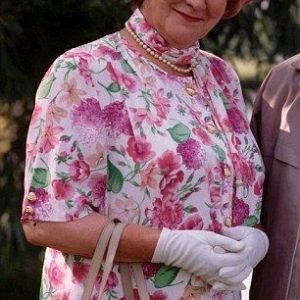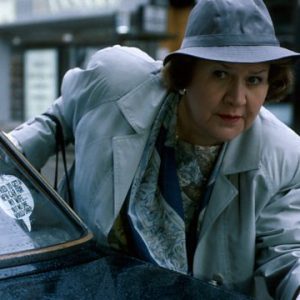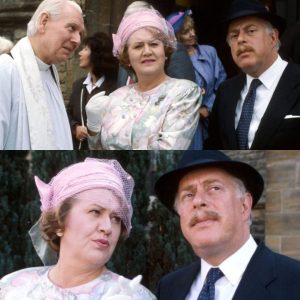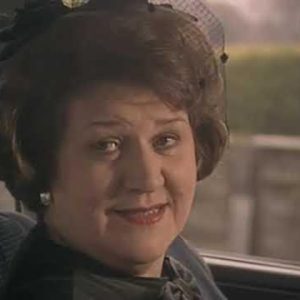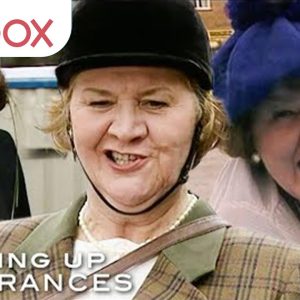Dame Patricia Routledge: A Lifetime of Laughter, Legacy, and the Art of Transformation
In the grand tapestry of British entertainment, few figures shine as brightly and enduringly as Dame Patricia Routledge. For over seven decades, her voice, presence, and exquisite comic timing have resonated across stages, screens, and the hearts of millions. From the velvet-curtained theatres of the West End to the cozy living rooms where Hyacinth Bucket reigned with porcelain perfection, Routledge has done more than perform—she has defined an era.
Now, at 94 years old, Dame Patricia stands as a towering figure in the arts: a woman of extraordinary talent, unfailing grace, and indomitable wit. Her career has not only entertained—it has shaped the very definition of what it means to be a versatile, dynamic performer.
The Bucket Woman: A Role That Made History
To many, she will forever be remembered as Hyacinth Bucket (pronounced “Bouquet,” as she would emphatically remind us), the irrepressible social climber at the heart of the BBC’s beloved sitcom Keeping Up Appearances (1990–1995). With her starched floral dresses, clipped vowels, and obsession with class and candlelit dinners, Hyacinth was both a caricature and a commentary—an unforgettable symbol of British middle-class aspiration and absurdity.
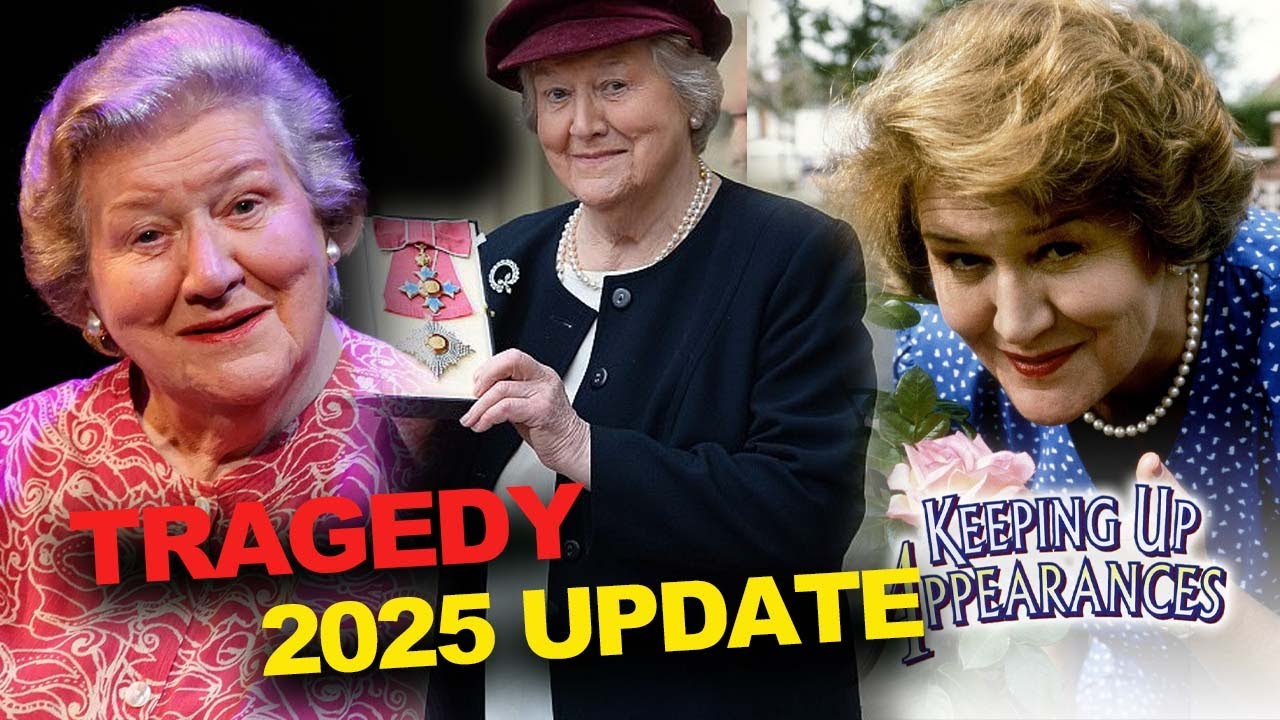
But what made Hyacinth more than a sitcom stereotype was Routledge’s genius. She imbued the character with such sincerity, timing, and controlled mania that even Hyacinth’s most ridiculous demands were delivered with Shakespearean intensity. She made you laugh—and made you care.
“People don’t realize how difficult comedy is,” Routledge once said. “You have to play it truthfully. If you start to act the comedy, you lose it.”
And that was her secret: truth in comedy, a lesson forged not in the television studio but in decades of work on the stage.
Before the Teacups: A Theatre Legend
Long before she became a household name, Routledge was already a star on the stage. Trained at the Liverpool-based Bristol Old Vic Theatre School, she made her professional debut in 1952 and quickly established herself as one of the most formidable dramatic and musical talents of her generation.
Whether performing Shakespeare with the Royal Shakespeare Company or dazzling in Sondheim’s Company, Routledge moved effortlessly between tragedy and farce, drama and operetta. Her performance in Leonard Bernstein’s Candide on Broadway won her a Tony Award in 1968. Critics praised her vocal power and comedic precision, describing her as “a master of nuance and natural elegance.”
What made her stage work so electric was not just technical skill—it was her emotional precision. Even in the grandest productions, Routledge found intimacy. Her characters weren’t just roles; they were real, flawed, vulnerable people with beating hearts and sharp minds.
The Detective Years: Hetty Wainthropp and the Power of Reinvention
When Keeping Up Appearances ended, Routledge could have easily rested on her laurels. Instead, she reinvented herself again. In 1996, she stepped into the title role of Hetty Wainthropp Investigates, a BBC mystery drama that ran for four seasons.
As Hetty, Routledge traded manicured perfection for practical shoes and northern grit. A retired housewife turned amateur detective, Hetty was as resourceful as she was kind. It was a role that offered Routledge new depth, highlighting her skill as a dramatic actress. Viewers saw a woman who had lived a full life—compassionate, clever, and commanding respect without ever demanding it.
The show gained a devoted following, not only in the UK but also in the United States, where fans saw in Hetty a cousin to Miss Marple and Jessica Fletcher. Through Hetty, Routledge reasserted her versatility, proving once again that she could master any genre.
A Voice for the Arts, A Voice for Change
Off-screen, Dame Patricia has been a tireless advocate for the arts and for cultural preservation. She has served as a trustee of the National Youth Theatre, a patron of the English Music Festival, and an outspoken defender of traditional performance spaces.
In 2017, she was made a Dame Commander of the Order of the British Empire—not only for her services to drama, but for her broader cultural contributions. She accepted the honor with characteristic humility: “It is a great privilege to be recognized for work that has brought me so much joy.”
Her advocacy has not been limited to the arts. She has been a fierce proponent of education, literacy, and mental health awareness, often lending her voice—both literally and figuratively—to national campaigns. Whether reading poetry on the BBC or giving a keynote on the power of theatre, Dame Patricia speaks with conviction and clarity.
Beyond the Spotlight: The Woman Herself
Though a public figure, Routledge has always maintained a certain mystique. She has never married, stating in interviews that she found fulfillment through her work, her friendships, and her deep faith.
Friends describe her as “incredibly witty, fiercely intelligent, and deeply private.” She lives modestly and continues to read scripts, support emerging talent, and attend performances whenever possible.
Her wit remains razor-sharp. When asked if she missed television, she famously replied, “I miss the days when you could say something clever and not have to explain it to a committee.”
A Legacy Written in Laughter and Grace
Dame Patricia Routledge’s legacy is more than a résumé of unforgettable roles. It is a testament to the enduring power of character, craft, and comedy. She showed us that intelligence and humor are not mutually exclusive, that women of a certain age can still lead, inspire, and surprise.
Hyacinth Bucket may have insisted on perfection, but Patricia Routledge achieved something far more enduring: excellence wrapped in humanity.
She did not simply act. She transformed, every role a revelation, every performance a gift. From the West End to weekend reruns, her work remains etched in our cultural memory.
As the curtain draws gently on a remarkable life in the arts, Dame Patricia’s legacy will continue to echo—through laughter, through reverence, and through the generations of artists she has inspired. The bouquets she once demanded on screen? They are now freely and rightly offered.
Let me know if you’d like this tailored for a specific publication (e.g., The Guardian, Variety, or BBC News) or with visual or layout suggestions.
